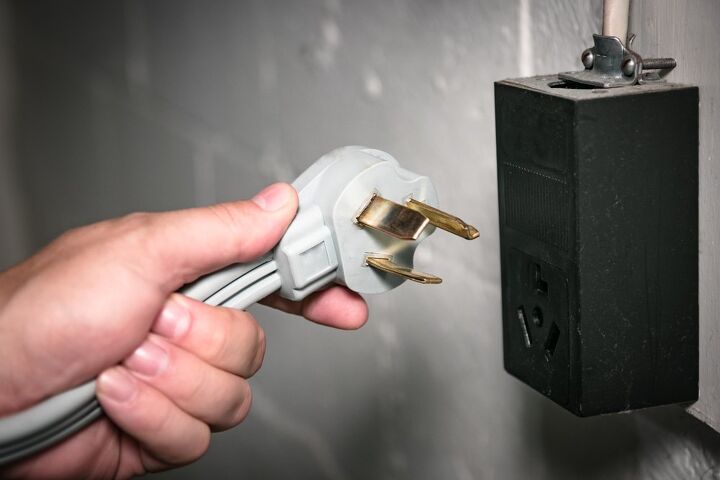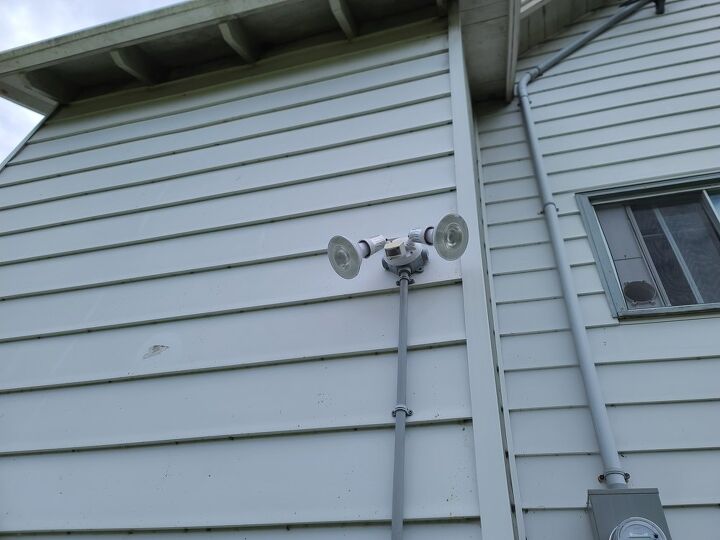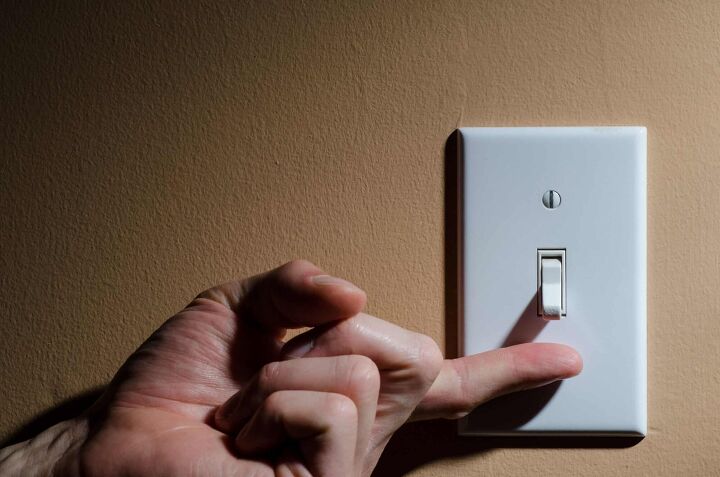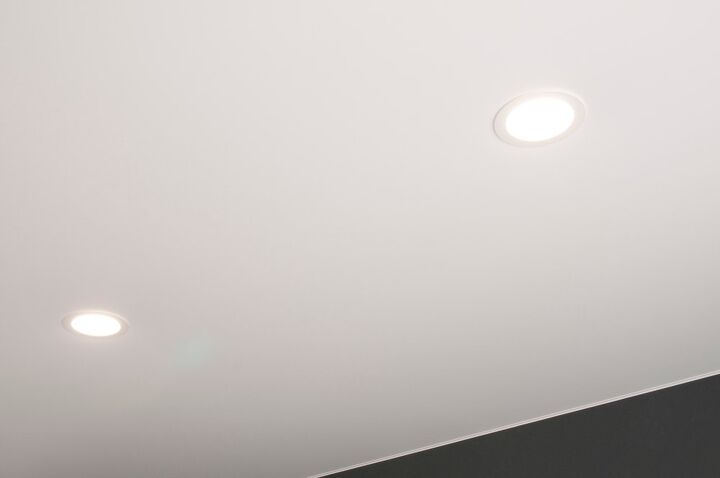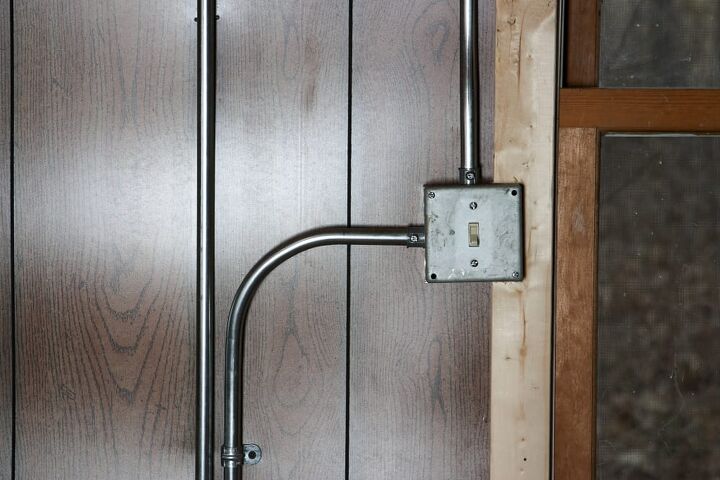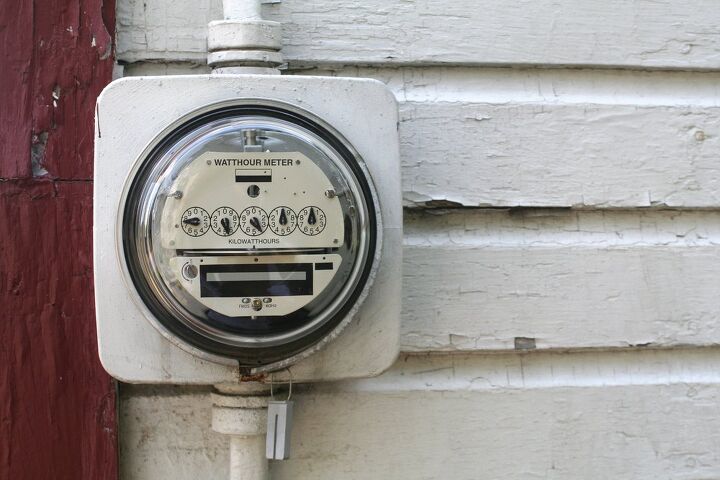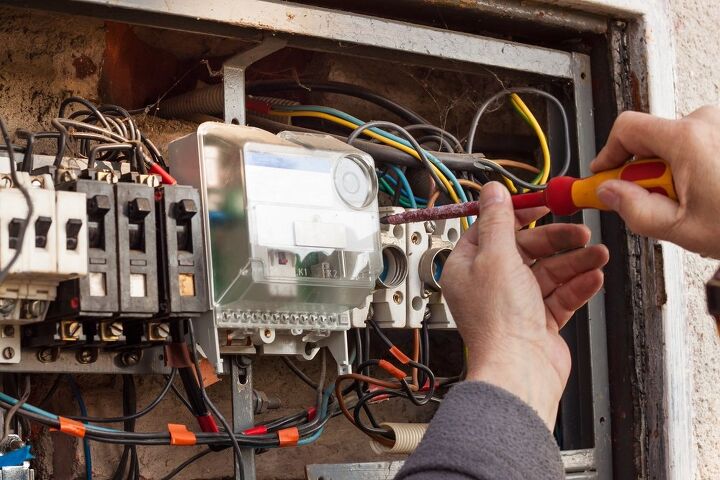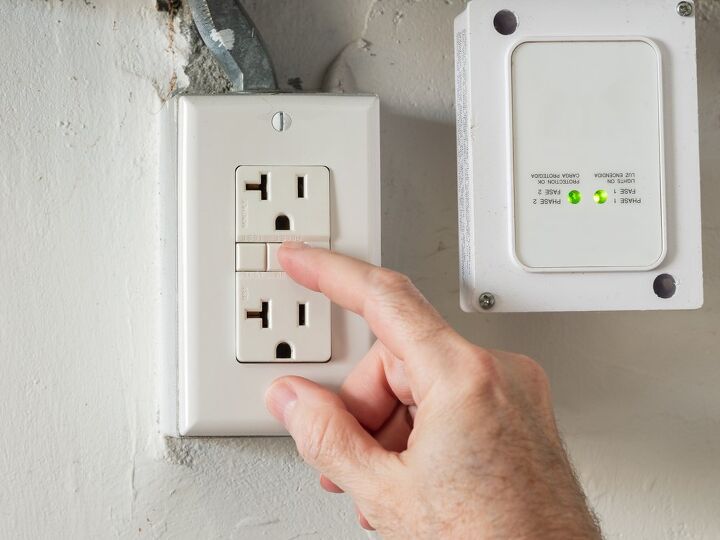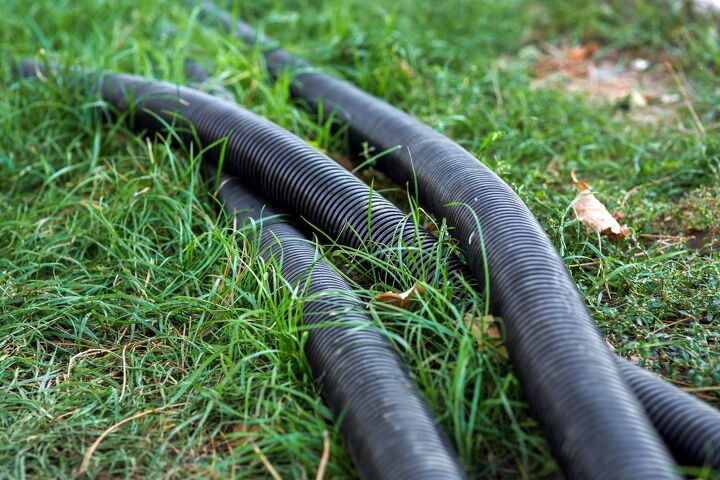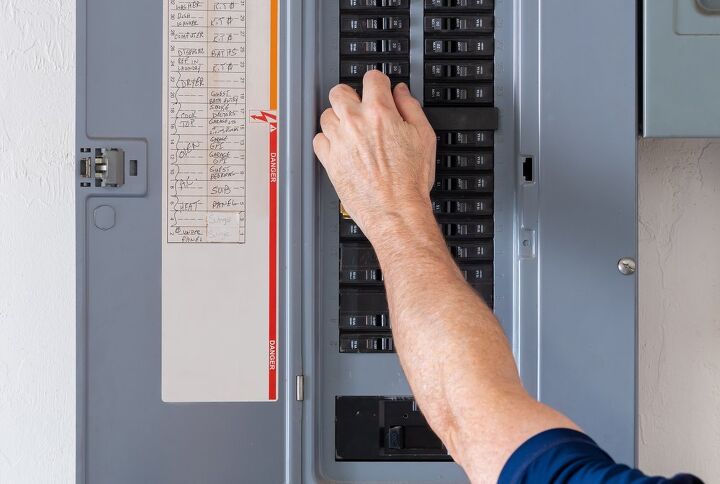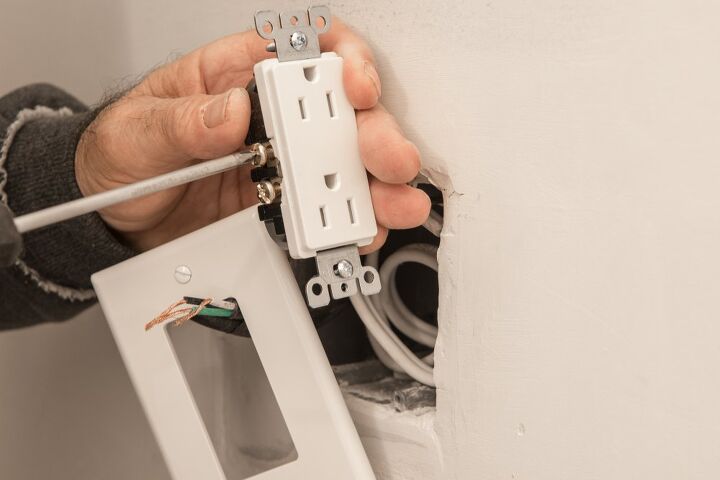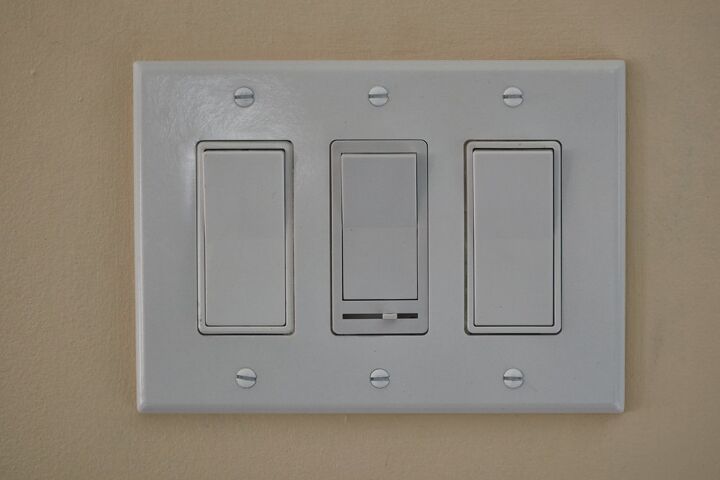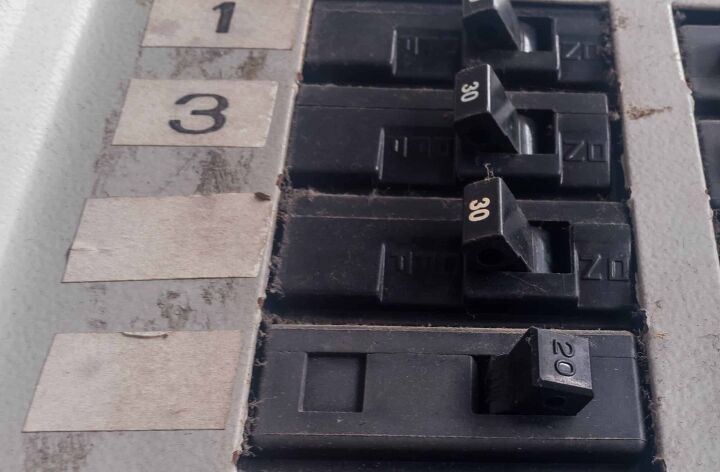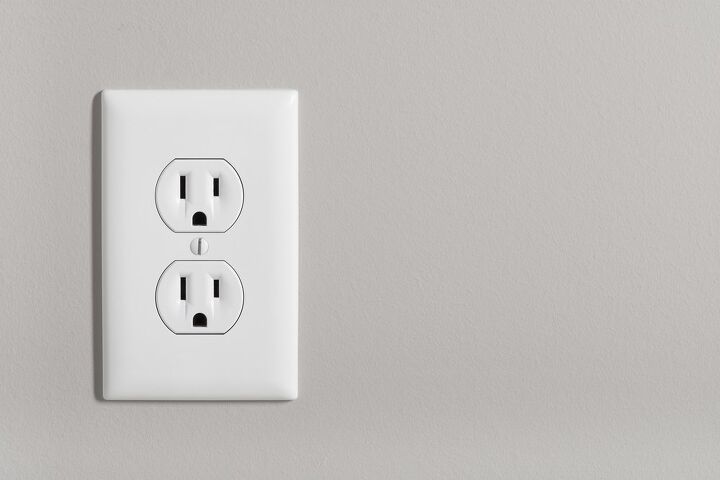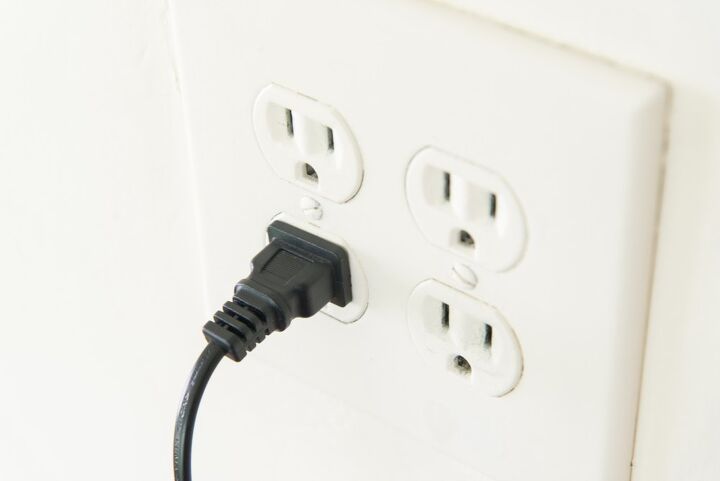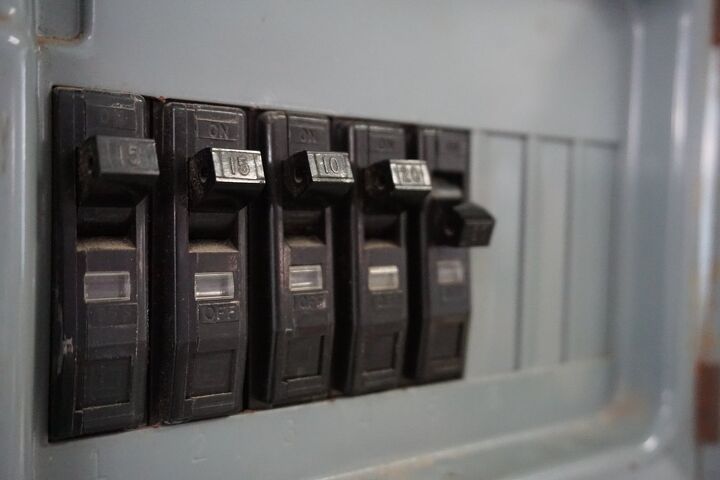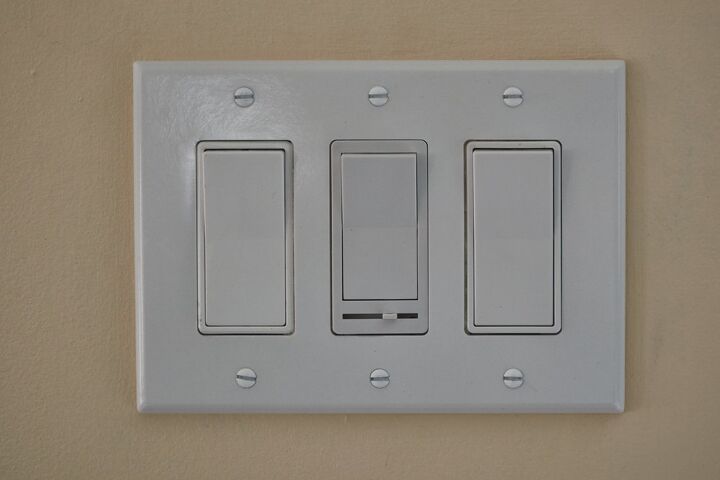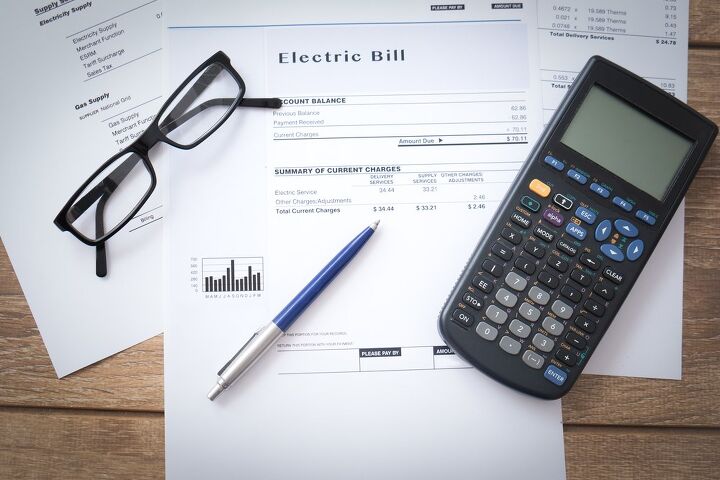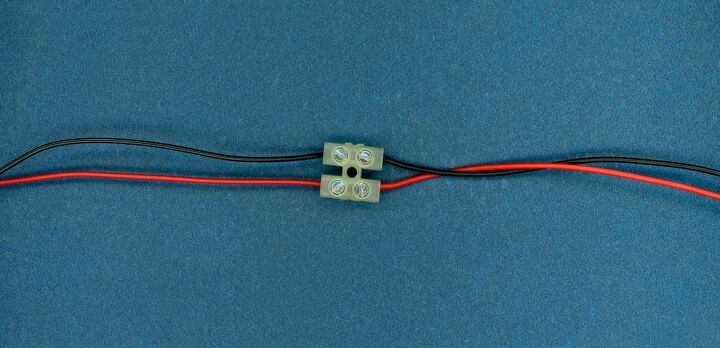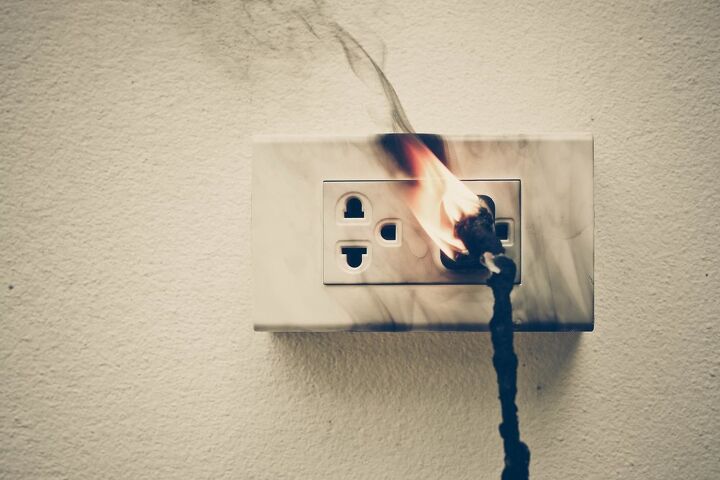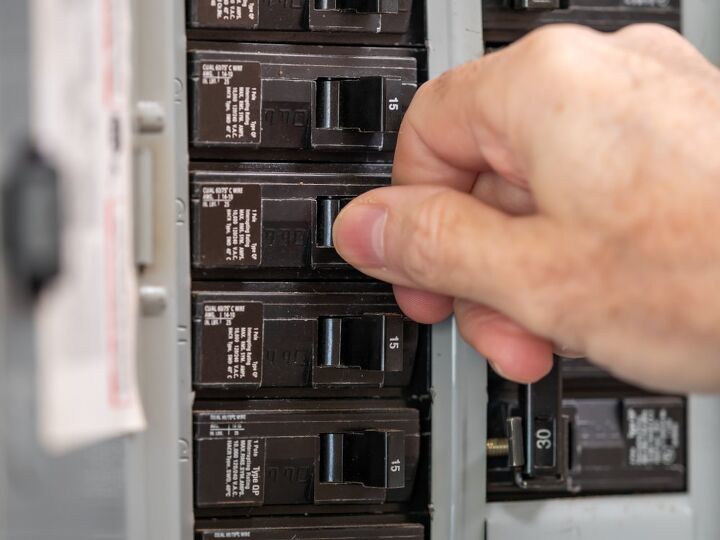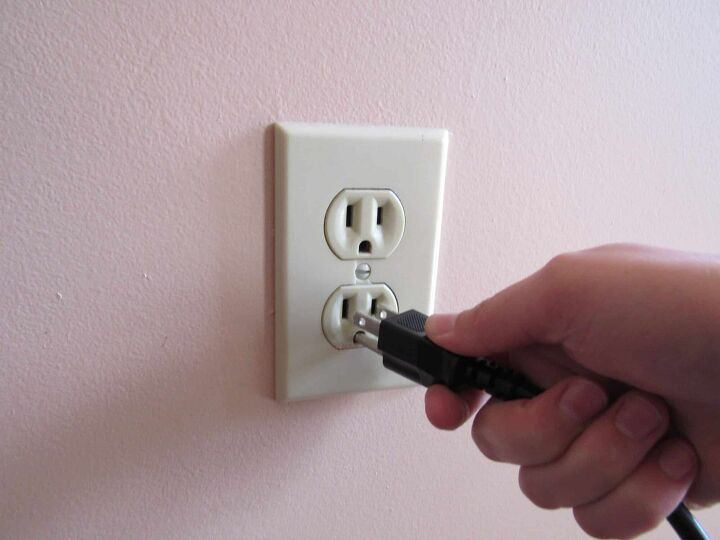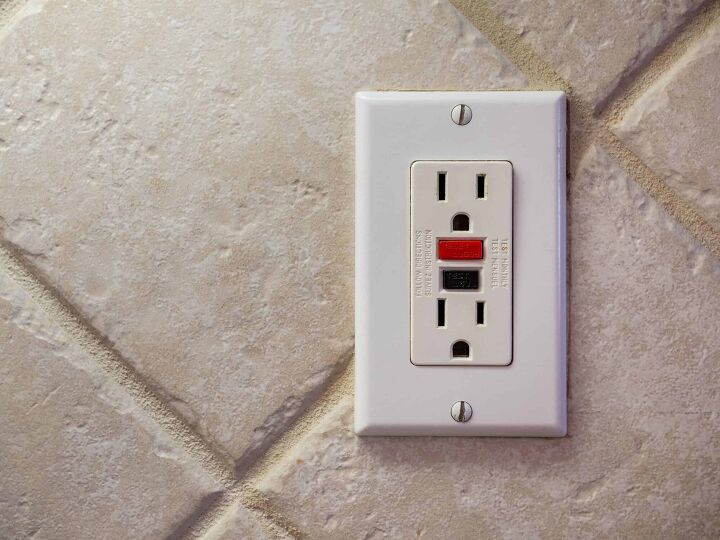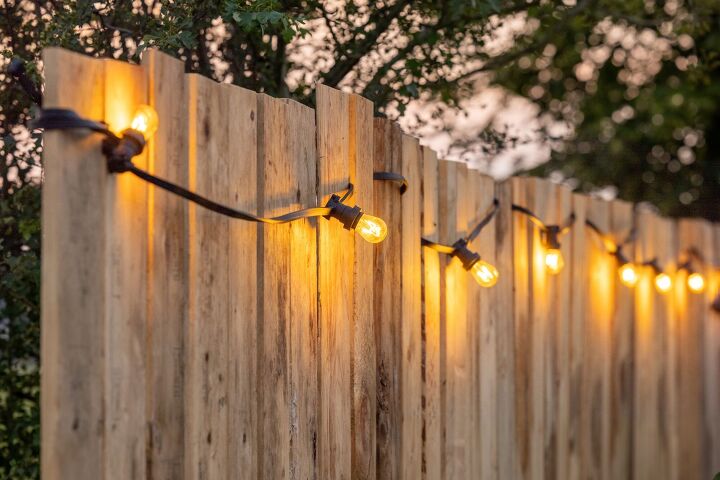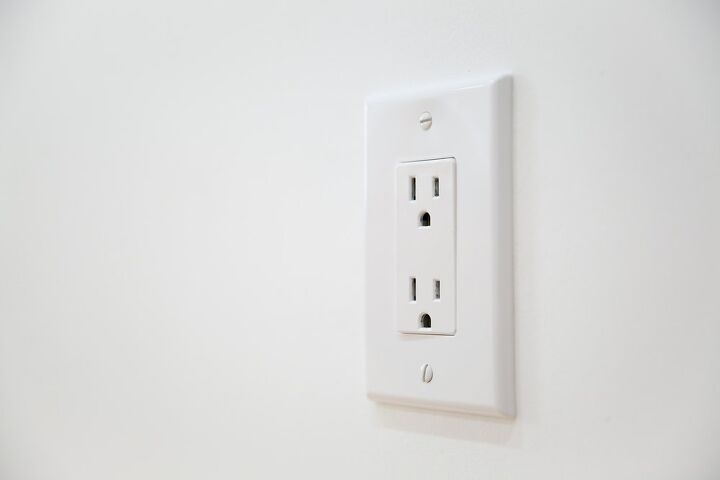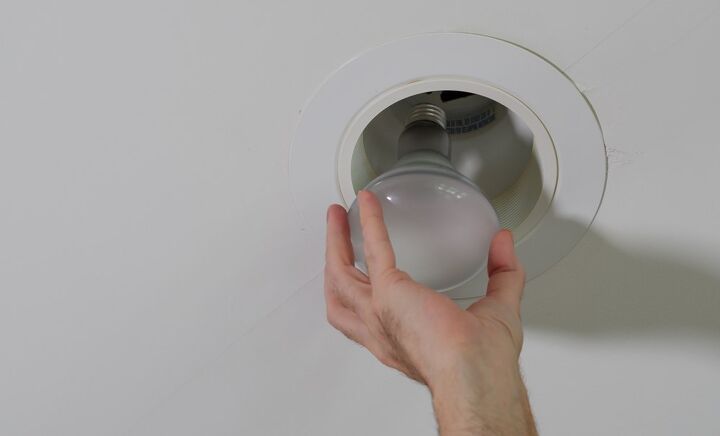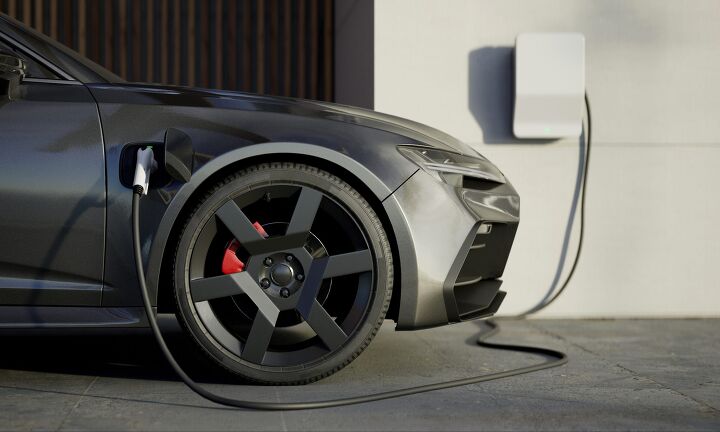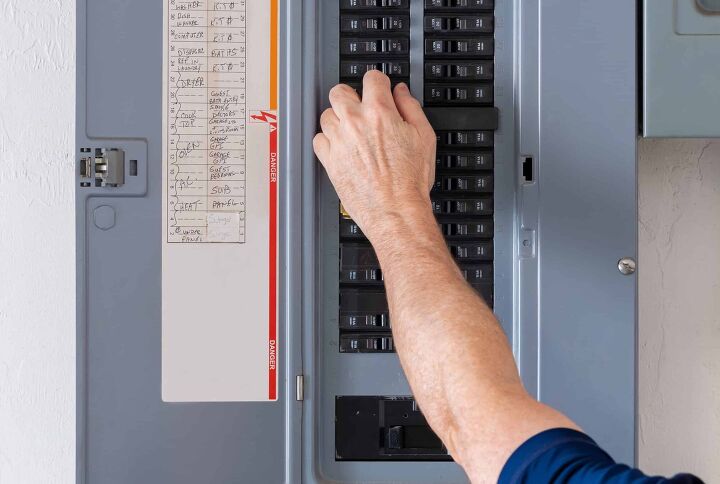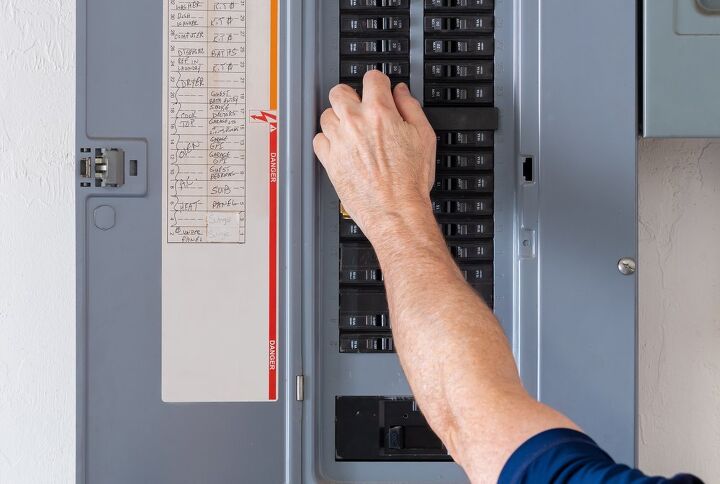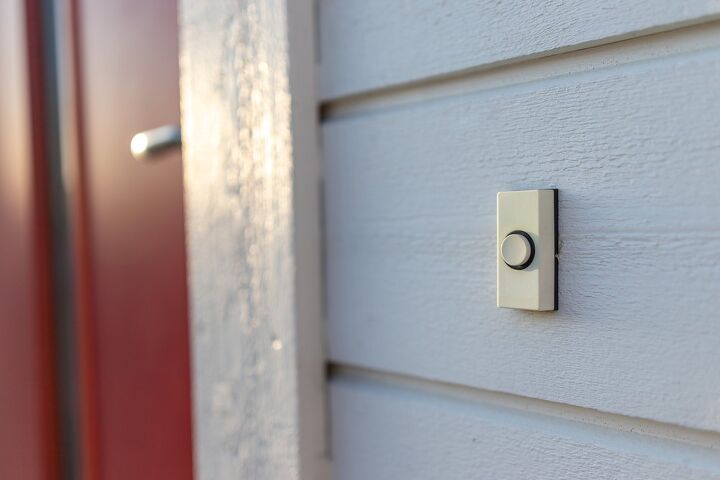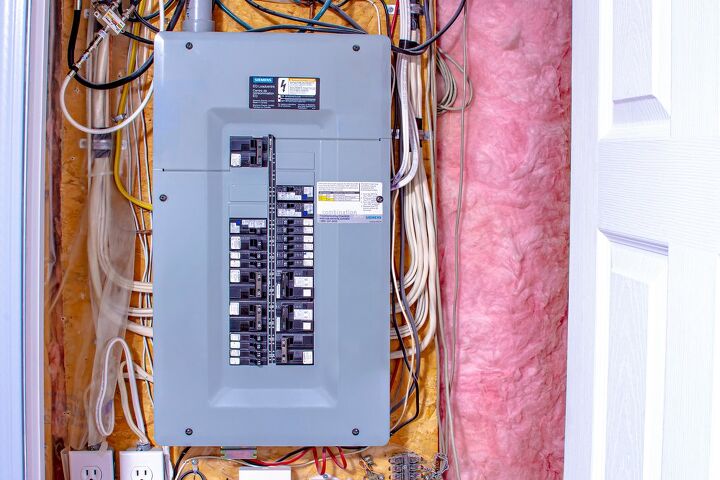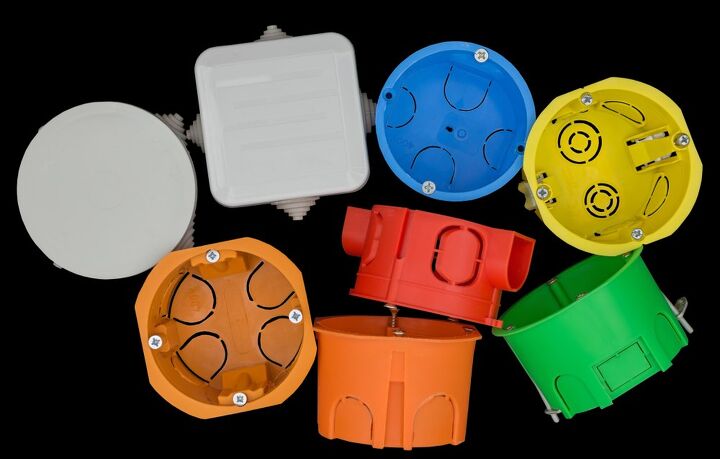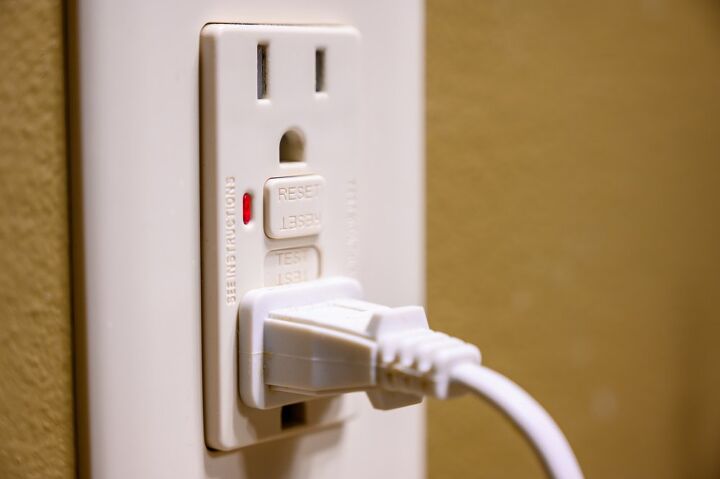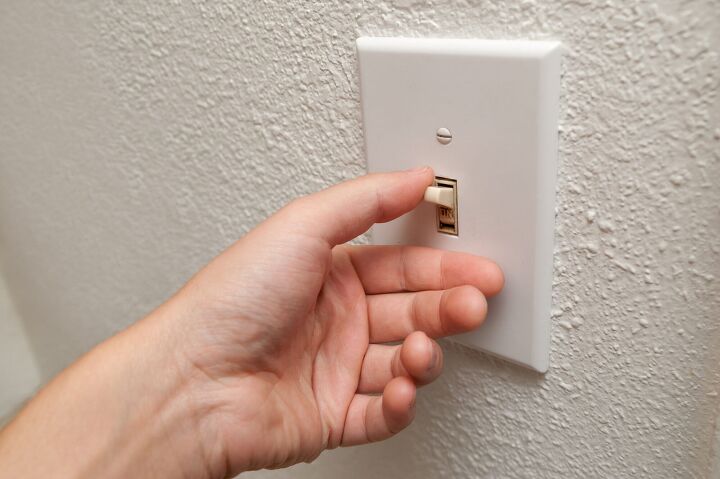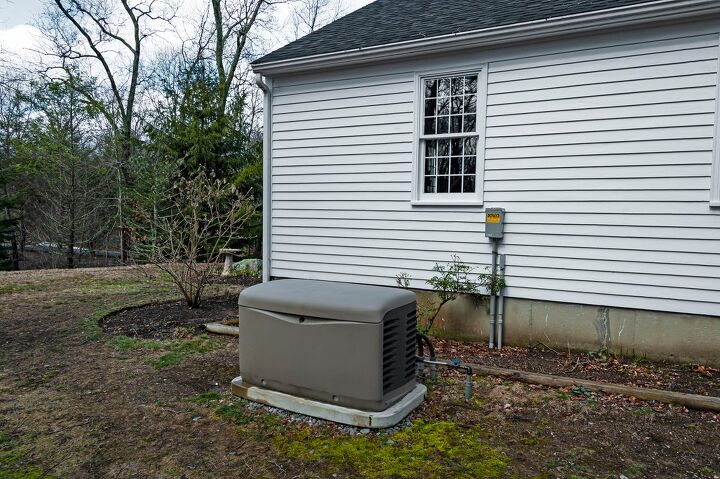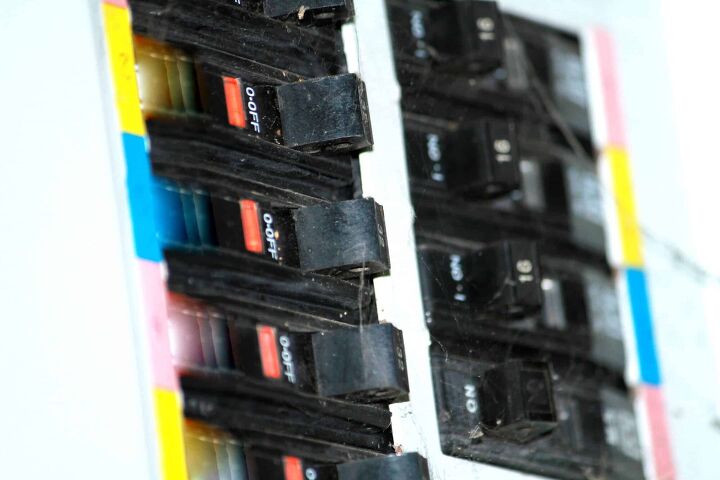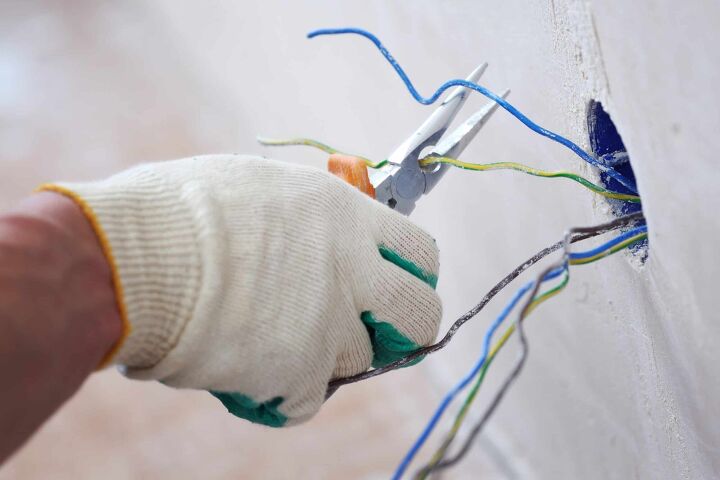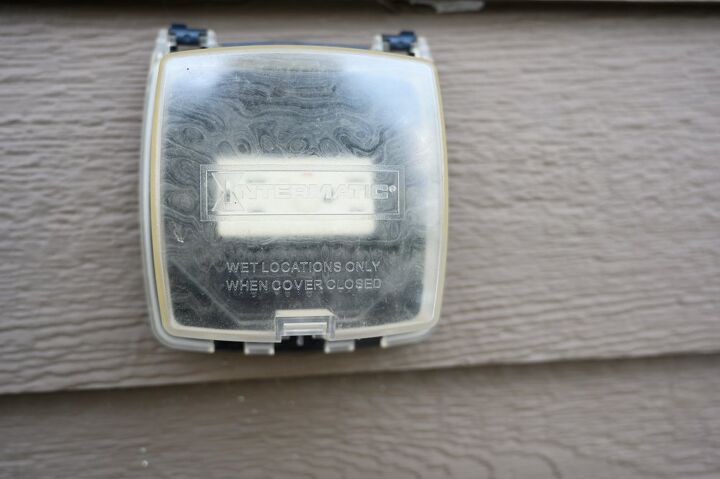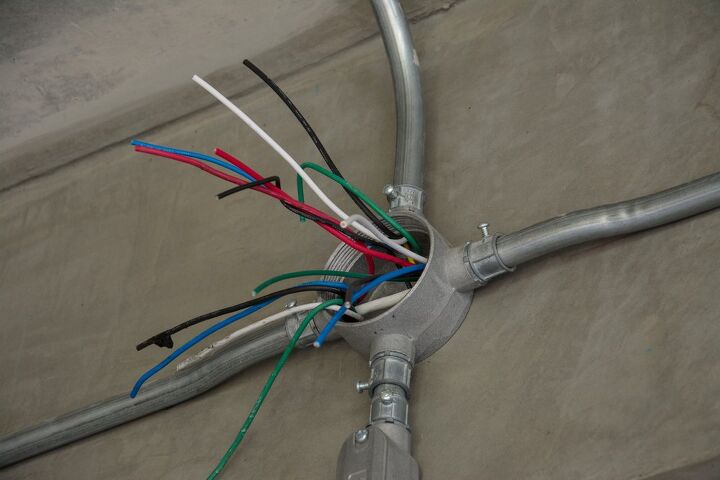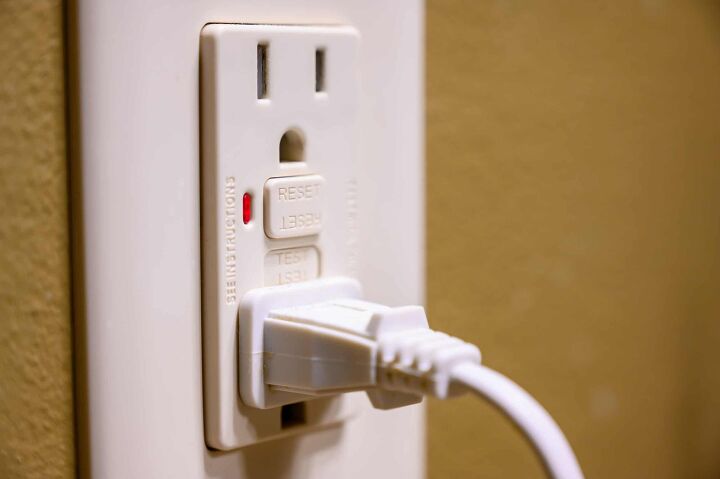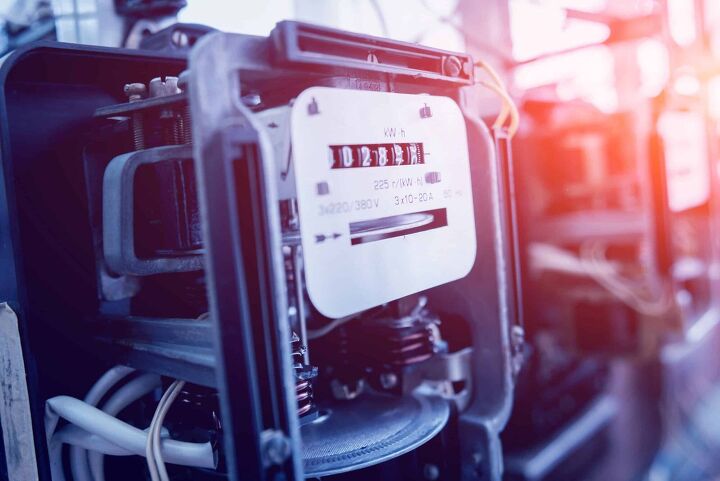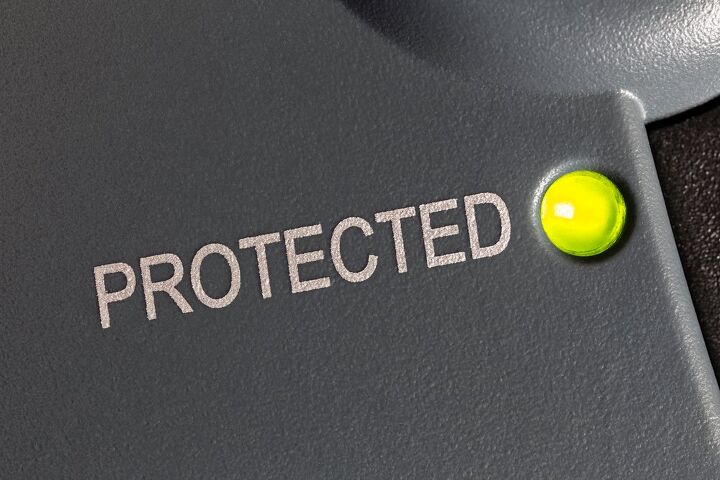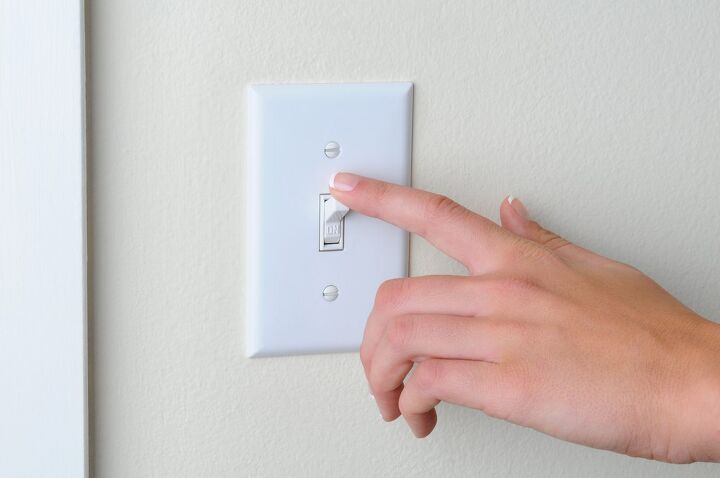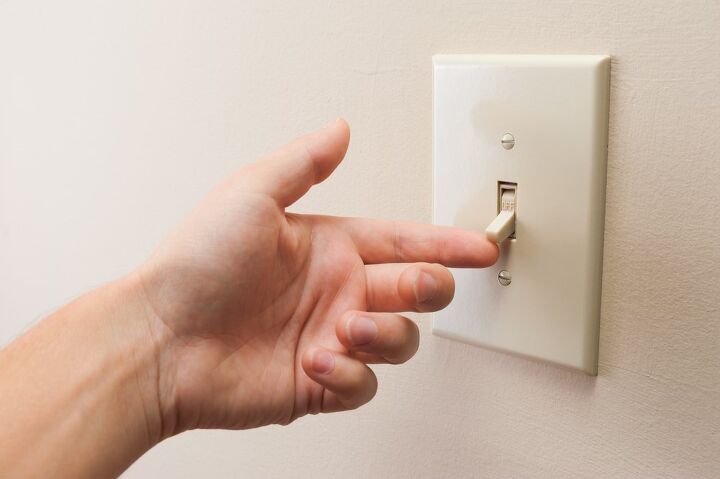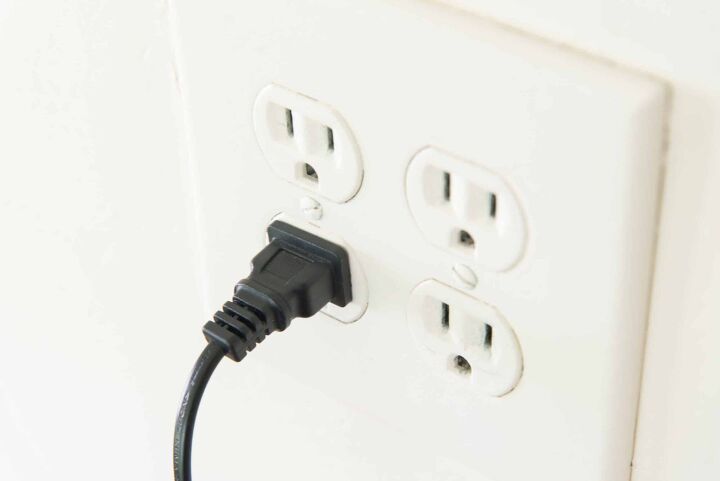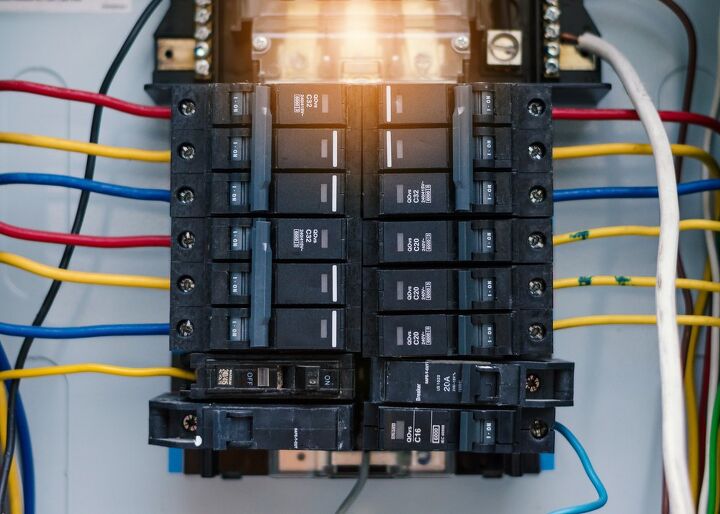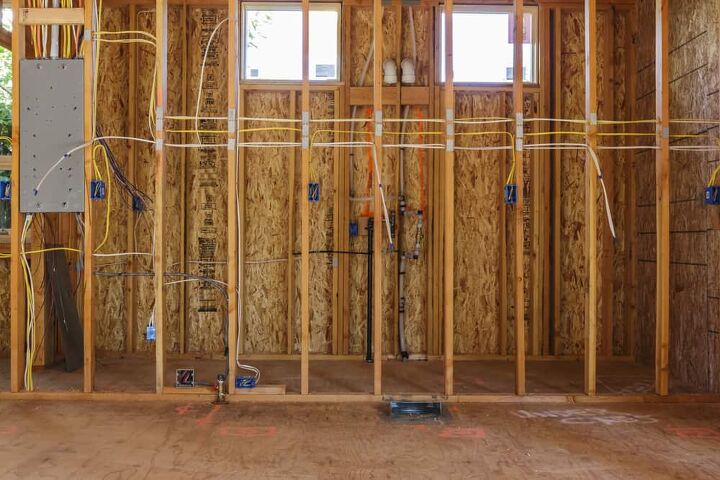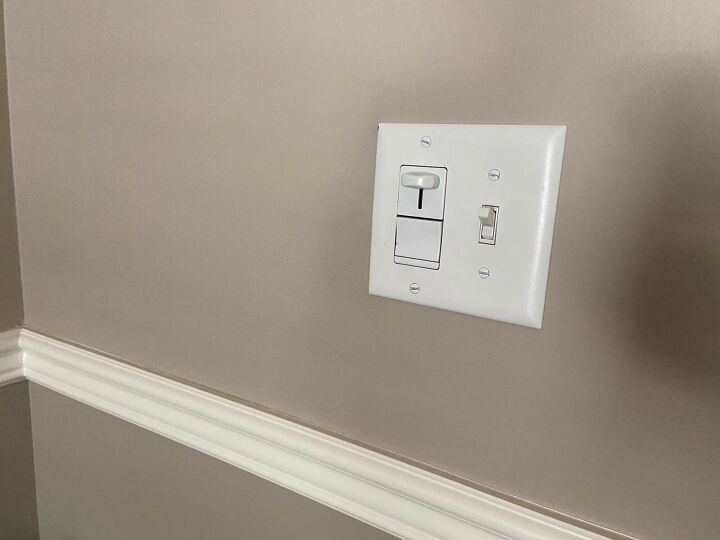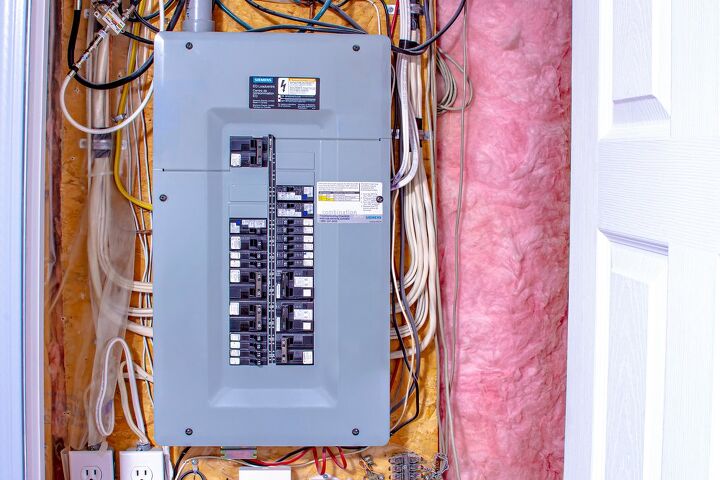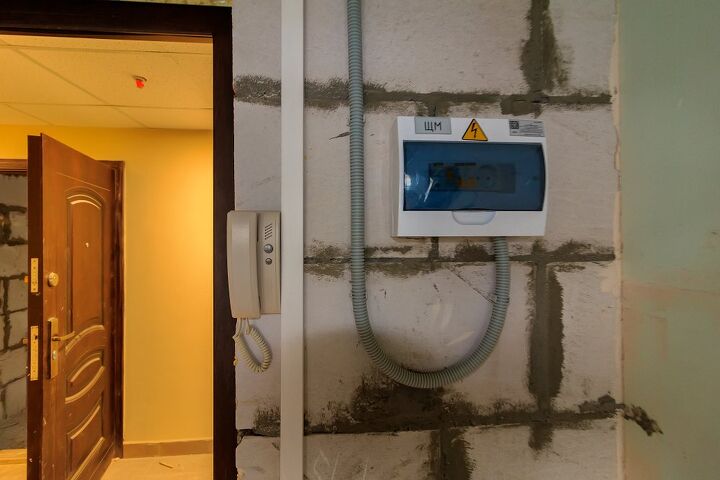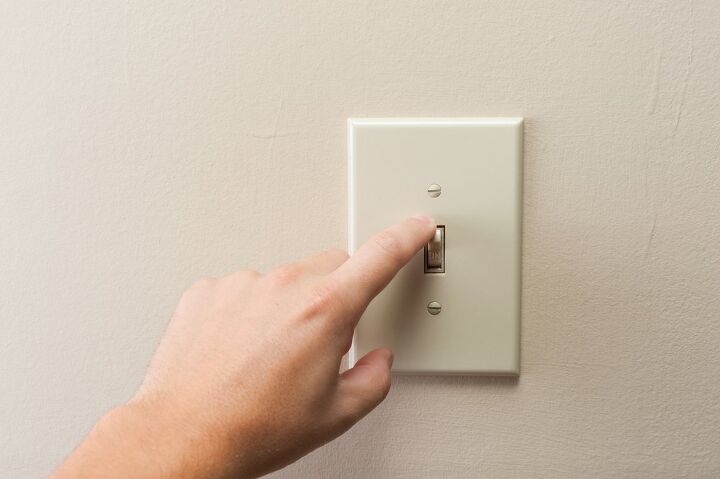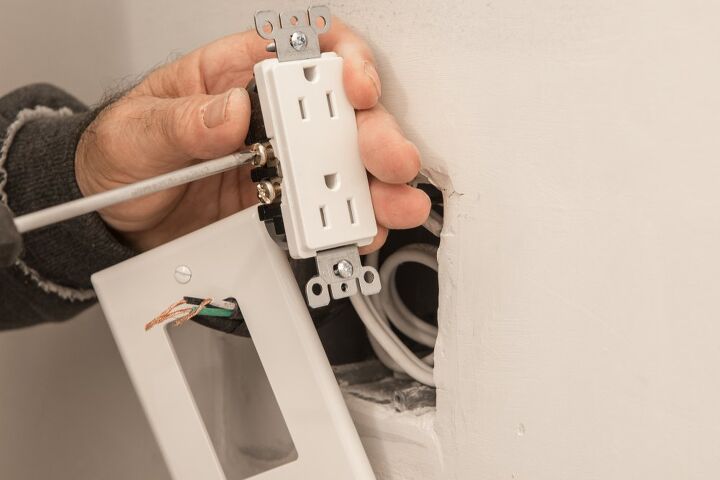Home Improvement Electrical
What Wire Size For 30 Amp 240 Volt Circuit?
Wiring your home is a tricky business. There are all sorts of factors to take into account when you start planning an electrical project that involves re-wiring. There are the safety considerations, the locations and the appliances themselves. You even need to take special care when choosing all your electrical wire to make sure it can withstand the electrical demands. So when you are choosing the wire for a 30 amp 240 volt circuit, what gauge should you select?
Can You Put A Floodlight Bulb In A Regular Socket?
LED floodlights are some of the brightest lights on the market right now. A properly functioning LED floodlight will illuminate a significantly wide area, and this is why these lights have “flood” in their name. They essentially flood a space with light, as opposed to spotlights and downlights that usually only illuminate a small area.
Power Out In One Room? (Possible Causes & Fixes)
What do you do when the power goes out? It’s usually from a storm and involves the whole house, right? But what if there is no storm and power is out in just one room? That could be a sign of something completely different.
My Recessed Lights Are Not Working (Possible Causes & Fixes)
Recessed lights are a visually appealing and modern way to add depth to a room. You can change the aesthetic of a room completely when you install recessed lights, that is when they work. So, what does it mean when my recessed lights are not working?
Can A Dishwasher And Disposal Be On The Same Circuit?
A modern kitchen needs to be able to do a lot, sometimes without much space. There needs to be a way to store and prepare food, clean and store dishes, and dispose of trash.
Can You Use A Junction Box To Extend Wiring? (Find Out Now!)
There are many reasons for homeowners to want more accessible wiring. To do this, electrical work is needed, which often brings up the question “can you use a junction box to extend the wiring?”
2022 Electric Meter Installation Cost
When planning out your expenses for the months ahead, it helps to know how much you regularly pay for certain bills. That knowledge can help you better distribute your finances. It can save you from potential budget shortages near the arrival of your next paycheck.
What Size Wire Is Needed For 60-Amp Breaker? (Find Out Now!)
Your circuit breaker is a crucial part of your electrical panel that functions as a safety precaution should too much power pass through the wires. Rather than letting the power surge through the wire, it will temporarily shut off to protect the breaker and the electrical panel.
Does A Sump Pump Need GFCI Outlet?
A failed sump pump can be a nightmare situation. Ankle deep standing water in a basement after a sump pump fails is no picnic. But what if that standing water is energized and capable of delivering a lethal shock? Shouldn’t sump pumps be on a GFCI protected outlet?
Can I Run Electrical Conduit Above Ground? (Find Out Now!)
Your new workshop is sitting happily behind your landscaped backyard. The only thing lacking is electricity in the shop. Unfortunately, the pedestal that holds your electric meter is on the other side of your beautifully landscaped backyard. Ditching to run the electrical lines underground would destroy much of your landscape. You wonder if you can run electrical conduit above ground?
How Big Of A Subpanel Can I Install Off A 100 Amp Service?
If you want to add more circuits to your home but don’t have room in your pane box, a subpanel makes expansion possible. It’s a common problem, especially in older houses, not to have enough spaces in your breaker box. If you choose to add a subpanel to your home, it’s important to know your limitations.
Are Ungrounded Outlets Safe? (No, Here's Why)
Are ungrounded outlets safe? No, definitely not. Ungrounded outlets are NOT safe. They’re significantly more dangerous than grounded outlets, and that’s why the National Electrical Code, in 1947,* began requiring certain areas of new constructions to have three-pronged, “grounded” outlets. Ungrounded outlets don’t protect against surges and significantly increase the risk of electrical fires.
Lights Dim When AC Turns On? (Possible Causes & Fixes)
There is no mistaking when the AC comes on in your house. Not only can you hear the condensing unit start, the lights in the house flicker, dimming for a few moments each time. What does it mean with the lights dim each time the AC turns on?
Why Do Dimmer Switches Get Hot? (Find Out Now!)
Dimmer switches can often take people by surprise with the heat they emit, particularly if they aren’t used to using them in the house. It can be shocking, true. However, there is a difference between a warm dimmer switch and one that it hot enough to make you go “OW!” Are you one of the many people curious about the reasons why dimmer switches seem to turn up the heat.
Why Is Electrical Wire So Expensive? (Find Out Now!)
Whether you’re in the midst of a new construction project or rewiring a house, purchasing electrical wire is a must. The overall price of wires varies based on material and square footage, but there’s more to the story, too.
Do I Need A Permit To Add A Subpanel?
When dealing with electricity, it is often a question of where you live as to whether you need a permit or not. Just as with this question about installing a subpanel, it will depend on your particular state and city. It can also be dependent on the building codes in your specific community or subdivision.
How Many Outlets Can Be On A 15 Amp Circuit? (Find Out Now!)
Outlets allow us to power the modern necessities in life, running electricity to our lighting, appliances, or phone chargers. Having outlets in convenient locations around the house is ideal and can help make life easier. In most modern homes, there is usually at least one outlet on every wall. To keep homes safe, code dictates how many outlets can go onto a 15 amp circuit, standard for most homes.
Why Electrical Outlets Don't Work: Tips to Troubleshot and Fix
Electrical wall outlets are some unobtrusive but important parts of our home. Think of how many items depend on your electrical outlets to provide power consistently. We hardly give them a thought as we pug and unplug various devices expecting them to work. However, it can be frustrating and confusing when one or more electrical outlets in your home quit working.
Are Federal Pacific Breaker Panels Safe? Dangers and Cost to Replace
There are millions of homes in the United States that have a ticking time-bomb somewhere in the structure. Between 1950 and 1980, Federal Pacific Electric Company (FPE) sold most of the circuit breakers installed in homes in the US. There is still widespread confusion about the safety of FPE circuit breakers and panels.
Why Are Dimmer Switches So Expensive? (Find Out Now!)
Have you ever been in a room that was too bright, and you wished that you could tone down the brightness of the room’s light? If so, then you would need a dimmer switch to do that. Dimmer switches are a commodity that doesn’t come as standard procedure on most houses. They’re a specialty item that costs more than normal light switches.
How To Reduce Your Electric Bill
The shock of a massive electric bill is enough to make any homeowner want to curb their energy consumption. Whether it be in the dead heat of summer or the harsh cold of winter, you can’t simply go without heating or cooling. Luckily, there are some great ways to reduce your electric bill and save energy.
How To Wire A Light Fixture With Red, Black, And White Wires
Installing a new light fixture looks to be a simple operation. Two wires to connect and hang the new light fixture. Then you take down the old light fixture and find a mass of white, black, and red wires. There is an instant flash of panic as you try and figure out how to wire the new light fixture. Which of the black, white, and red wires do you use?
Do Smart Plugs Save Energy?
Countless homeowners have done everything that they can to transform their houses into smart homes. It’s easy to overlook certain simple devices that make it easier to go about your day as a homeowner, such as smart plugs. So, do smart plugs save energy?
Can You Put Out An Electrical Fire With Water? (Find Out Now!)
Electrical service is a hallmark of modern civilization. Having electrical service is so common we tend to take it for granted. However, there are times when electricity becomes a problem. An arc or short circuit in an electrical system can quickly start a fire you our home. Many people wonder if an electrical fire can be extinguished with water?
Common Questions About AFCI Requirements In Homes
Every homeowner understands the importance of electrical safety. Sure, this isn’t something one thinks of daily, as usually there isn’t cause to think about the electrical systems in your home. You turn your lights on, use appliances, and go about your day without considering all that’s required to reliably provide your home with electricity day in and day out.
How to Fix an Open Neutral
In North America, 240 volts of electricity are supplied to a panel. The 240 volts are split between two 120-volt circuits.
Does A Refrigerator Need To Be On A GFCI Circuit?
Your refrigerator can work with a standard electrical outlet as well as a GFCI. Many people believe that using a non-GFCI outlet is the best option for food storage. Thinking that this will prevent unnecessary tripping of the circuit breaker, causing food spoilage.
How To Hang String Lights In Backyard Without Trees
So, you went to your friend’s house the other night for some backyard conversation and wine and fell in love with their yard. It was relaxing and comfortable, and those string lights in their trees were the perfect finishing touch. Now you want to hang string lights in your backyard, but you don’t have any trees.
What Is A Self-Grounding Outlet?
Before GFCIs and self-grounding electrical outlets, there were a lot more individuals getting electrocuted by rogue currents. But now, it’s very rare for such an event to happen, mainly because of the two devices above.
Can A Handyman Install Recessed Lighting? (Find Out Now!)
You may not know the term ‘recessed lighting,’ but you’re guaranteed to have seen it somewhere. These ceiling fixtures, which create nice ambient lighting, are a worthy addition to any home. But it can be tough to know which kind of recessed lighting to buy, and if a pro should install them for you. Let’s discuss the question, can a handyman install recessed lighting?
How Many Amps Does A Water Heater Use? (Find Out Now!)
People often tend to forget about things they grow used to in a home. A water heater is one of those appliances that are well hidden we tend to forget. The only time we know, it is there is when the hot water is not working.
Does An EV Charger Increase The Value Of Your Home?
In this modern world with so many advances in home design, functionality, and technology, there seems to be an endless number of ways to improve your home. Whether it’s turning it into a smart home or making your house as energy efficient as possible, there are lots of ways to make your home better. Some of these improvements are personal preferences, while others can drastically increase the value of a home. Take installing an EV charger in your home for example. Is this simply a personal preference, or can installing an EV charging station increase the value of your home?
Can A Bad Breaker Cause Low Voltage? (Find Out Now!)
Once, not too long ago, I saw something a little strange happen to a friend’s house. The lights started to dim. Getting any type of electrical equipment seemed to be a big issue. The entire house seemed to be suffering from low voltage, despite the electrical wires outside being totally intact. One of my friends suggested that a bad breaker could be the cause, but is this really a possibility?
What Is A Double Tapped Breaker: Dangers and How to Fix Them
Circuit breakers protect your electrical system and home. If a circuit is overloaded, the breaker is tripped to cut off the flow of electricity. Normally each breaker has only one wire, but double tapped breakers are common. The problem may be identified by an electrician or home inspector.
What To Do If Your Doorbell Wires Are Not Labeled? (Do This!)
If your doorbell wires are not labeled, then you need to locate the chime and the low-voltage transformer. The chime could be in your living room, kitchen, or another open area. The transformer may be near your electrical panel, garage, or mechanical room.
10 Amazing Ways To Conceal An Electrical Panel
Electrical panels stick out like a sore thumb, and while they are practical, they are also visually unappealing. These eyesores are a necessary evil, but you don’t have to necessarily see them for them to be useful. There are several amazing ways to conceal an electrical panel and still access it.
What Size Screws Are For An Electrical Box? (Find Out Now!)
Most new electrical boxes and configurations will come with the needed electrical screws in the package. If you are simply replacing an electrical box or have lost the original screws, you may need to purchase new screws to attach your electrical box safely. Determining the correct size and type of electrical screw can be difficult, though, especially with so many screw options available on the market.
Why Do GFCI Outlets Have A Blinking Red Light? (Find Out Now!)
Ground fault circuit interrupters (GFCIs) have been around for decades, and these days it’s near impossible to find a modern home which doesn’t utilize these devices; they’re even used in a lot of older homes now because they’re useful here as well.
What Amp Light Switch Do I Need? (Find Out Now!)
The purpose of light switches and dimmers is to open and close electrical circuits, which control the light fixture. Before installing or replacing a light switch, it’s important to ensure that the switch you choose matches the amperage rating and voltage of where it’s going to be mounted. For this reason, you may find yourself asking: What amp light switch do I need?
Can I Wire A Baseboard Heater To An Electrical Outlet?
Adding baseboard heating units to an existing home is one way to increase the heating capabilities quickly and efficiently. Electric baseboard heaters are relatively easy to install and comparatively cost-effective. Providing the electrical power to baseboard heating can be challenging. Many homeowners wonder if they can wire a baseboard heater to an existing electrical outlet.
What Size Generator Do You Need To Run A Water Heater?
During Superstorm Sandy, most of my neighborhood was out of power. Having a warm shower felt like a distant memory, unless you had that one “bougie” neighbor with a generator. I was lucky enough to be friends with a millionaire’s daughter at the time. So, I got a shower. Part of getting that warm water involved knowing what size generator they needed to run a water heater.
How To Increase Circuit Breaker Amps (Find Out Now!)
New appliances or new tools in your garage workshop may have you wondering about getting enough electrical service to those outlets. You know you need more amps but aren’t sure how to accomplish the upgrade. This situation leads to the question, how to increase circuit breaker amps?
How To Rewire a House Without Removing Drywall
Often times, when builder-owners plan to rewire a house, it is to protect the drywall from fire hazards. Things get slightly complicated, however, when builder-owners are faced with the thought that they may have to remove drywall. You don’t need to worry, because you can rewire a house without removing drywall, and it’s easier than it sounds.
Outdoor GFCI Outlet Keeps Tripping After Rain? (Fix It Now!)
Any outdoor electrical circuit should be protected by a GFCI breaker somewhere in the circuit. GFCI circuits protect you from an accidental shock be interrupting the flow of electricity when an electrical fault is detected. Sometimes, an outdoor GFCI outlet will trip after a rainstorm.
When To Use Conduit For Electrical Wiring (We Have The Answer!)
Electricity is everywhere in our lives. It powers our lights, our workplaces, and our world. So that means that we should all be very familiar with all things electricity, right? Wrong. Unfortunately, as useful and as necessary as electricity in our lives, most of us only have a novice understanding of electricity at best. And that means if you are working with electrical wiring, it is good to know some ground rules (pun intended), like when to use conduit for electrical wiring.
GFCI Outlet Buzzing? (Possible Causes & Fixes)
Ensuring that your wall outlets, GFCI included, are functioning properly is essential to the prevention of electrical fires, short circuits, and other possible electrical problems in the home. If your GFCI outlet is buzzing, this could be a result of a number of different issues. Their main purpose is to prevent electrocution, and when you’re experiencing any sort of malfunction with your GFCI, it’s important that you troubleshoot and fix the problem as soon as possible.
Can You Feed Two Panels From One Meter? (Find Out Now!)
Are you wanting to know if it is possible to feed two panels from one meter? If so, then we are going to show you exactly what that looks like, and what your options are.
Is Surge Protection Required By Code?
The most common causes of electrical surges come from internal sources within your home, which can send hundreds of thousands of volts through your system at once. When the voltage goes up throughout your house at this velocity, all sorts of things can happen- including fires from overheated wires to tripped breakers and short-circuiting outlets.
Why Does My Light Switch Get Hot? (Find Out Now!)
If your light switch is hot to the touch, it could be related to a few different reasons. But the biggest thing to note is a hot light switch is a fire waiting to happen. As soon as you notice the temperature is warmer than warm, call a professional right away.
How To Find What A Light Switch Controls (Do This!)
Every house seems to have that one light switch that controls nothing. I have several in my house. It can be quite frustrating, but fear not! There are a few ways to hunt down what your mystery switch controls.
Plug Gets Hot When Plugged In? (Possible Causes & Fixes)
An electrical outlet (also referred to as an electrical receptacle) is the place where you plug in all your appliances and electrical devices. When functioning correctly, these will stay at room temperature.
Can Neutral And Ground Wires Be On The Same Bus Bar?
Many homeowners get confused about their electrical system when talking about neutrals and grounds. This confusion can lead to questions about how the circuit breaker box in your home is wired. Is it permissible to have the neutral wires and the ground wires in your home’s electrical system connected to the same bus bar in the electrical panel?
Can Lights And Outlets Be On The Same Circuit? (Find Out Now!)
Dealing with wiring can be very intimidating. We all know the risks that come with handling wires, but it is necessary from time to time. Still, minimizing risk is possible as long as you abide by established safety guidelines.
Are Dimmer Switches Safe? (Find Out Now!)
Recently, I typed up an entire article about the way that dimmer switches run hot. As someone who grew up in a home where dimmers were a thing, I was pretty shocked to hear how hot they get. Dimmer switches apparently have a reputation for that. Unsurprisingly, some people believe they’re unsafe. I can’t blame them, if they never experienced it. It’s a debate worth discussing. Are dimmer switches safe?
Can A 10-Gauge Wire Handle 40 Amps? (Here Are the Details)
There are a lot of variables that go into determining whether a 10-gauge wire can handle 40 amps. The higher the amperage rating of the circuit, the larger the wires must be. This helps avoid fire by cutting down on excess heat that melts the wires.
What Size Wire For 200 Amp Service Underground?
If you are running an underground 200 amp service, then you may be wondering what size wire to use in your installation. We’re going to answer that question for you, however, keep in mind that you may need a permit and that a professional should do the installation.
Signs Your Electric Panel Needs An Upgrade: Plus Pros/Cons & Costs to Replace
The electrical system in your home is one of those things that get very little attention until something goes wrong. Unfortunately, when something does go wrong, the results can be rather spectacular. In too many instances, the results are also deadly. It is important to recognize the signs that your electrical panel needs an upgrade.
Neutral And Ground On Same Bar In The Subpanel? (Fix It Now!)
The electrical components of your home or business can require professional intervention much of the time for good reason. Not only is it a complicated setup, especially to DIYers, but it is dangerous as well. Plus there is the potential of installation going wrong on top of all that.
Light Switch Not Working After Changing? (We Have a Fix!)
Grab your wire connector, insulated pliers, a screwdriver, and a voltage tester—it’s time to see what’s wrong with that faulty light switch. And if you replaced your light switch recently, there’s a good chance that this has something to do with your light switch not working now. In this article, the common problems which manifest after a light switch replacement will be explained.
What Is A Tamper-Resistant Receptacle? (Find Out Now!)
When you first have kids or get a new pet, one of the things that you need to do is consider baby-proofing your home. There are a lot of hazards in and around your home that you may need to watch out for. For example, almost everything electronic can be hazardous to young kids. That’s why people are told to get tamper-resistant receptacles. But, what on earth is a tamper-resistant receptacle supposed to be?



